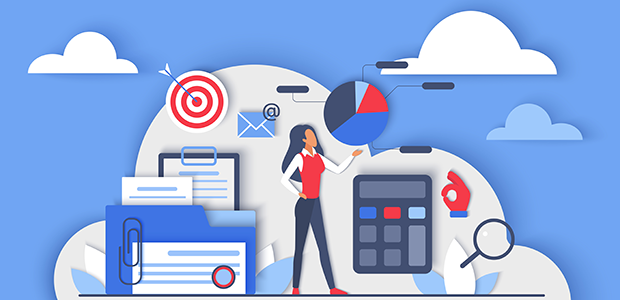
Why should a startup consider Cloud accounting?
Cloud accounting software facilitates online accounting and securely stores information in the Cloud, making it accessible to designated individuals anywhere, at any time.
It’s powered by a multifaceted framework so startups can manage the complete accounting journey under one roof, from recording financial information, and preparing accounting records, to submitting them directly to HMRC.
Cloud accounting is embraced by accountants and business owners around the world and is hailed for its efficiency. It establishes a new benchmark for fintech and arguably makes running a business easier, cheaper and quicker.
How can your startup benefit from Cloud accounting?
Cloud accounting offers a range of features that can be extremely beneficial for startups in keeping their finances in check, efficiently and accurately. It can be used with an accountant, or through the DIY approach if you are confident managing money.
Accessible anywhere, any time: as your accounting information is stored in the Cloud, it can be accessed anywhere, at any time, and through your desktop, phone or tablet so you can manage your accounting on the go.
Shared dashboard: work hand in hand with your accountant and view the same dashboard so you’re always on the same page. Track live changes and see your financial position in real-time so you can always make informed decisions.
Making tax digital: submit your accounting records directly to HMRC through Cloud accounting software that’s Making Tax Digital compliant. This applies to startups that must submit accounting records to Companies House, such as VAT-registered businesses.
Forecast finances: as Cloud accounting centralises accounting information, track the financial position of your startup at any time. This also helps to quickly produce cash flow, income, expenditure and tax forecasts.
Bank feeds: connect your business bank account to your account to build a complete picture of company finances, cutting out time spent going back and forth between banking apps, and your Cloud accounting portal to ensure figures reconcile.
Expenses: manage business expenses easily through a proper expense management system, and claim back on essential costs.
Invoicing: industry standard Cloud accounting systems are often fully integrated and offer many invoicing features. Produce invoices using templates, set automatic payment reminders, speed up payments through a direct payment link and benefit from insights to spot frequent late payers.
Now that we’ve run through the standout features of Cloud accounting software, which software is best for your startup?
Which accounting software is suitable for my startup?
There are a handful of Cloud accounting platforms available to both accountants and businesses alike, so it’s important to find software that suits your technical ability, needs and budget. To guide the decision-making process, establish the primary purpose of the software, and what additional features could improve recordkeeping, and save time and money.
The main providers of industry standard Cloud accounting software suitable for startups include FreeAgent, Sage, QuickBooks and Xero, however, the list isn’t exhaustive.
Using a recognised and trusted Cloud accounting provider means you’ll have access to services that meet high standards of modern technology and benefit from a host of integrations and intuitive features. In addition to efficient bookkeeping and accounting, Cloud accounting software can save time which equates to money.


